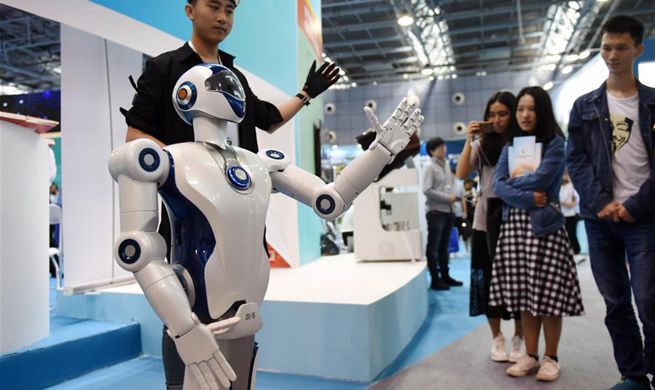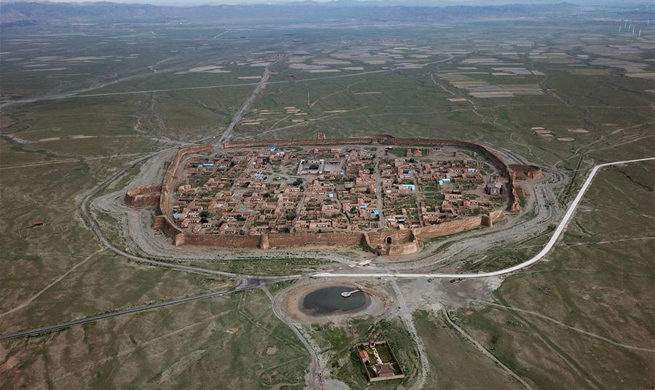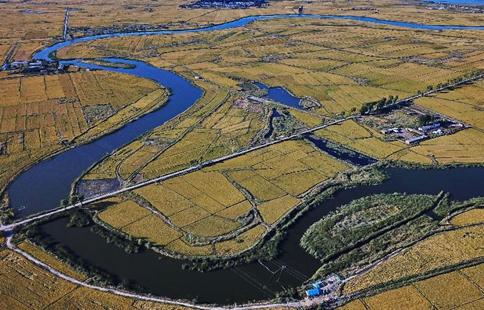by Xinhua writer Gao Lu
HOUSTON, Sept. 15 (Xinhua) -- Global effort is needed to understand and address climate change as extreme weather has already affected people's lives with more severity than we ever anticipated, a U.S. environment expert told Xinhua recently.
Jim Blackburn, co-director of Severe Storm Prediction, Education and Evacuation Center from Disasters in Rice University, said in an exclusive interview with Xinhua that there is an "absolute causal link" between severe storms and climate change.
The United States just experienced two major hurricanes, Harvey and Irma, that caused the death of dozens of people and the total loss of more than 200 billion U.S. dollars.
According to Blackburn, Hurricane Harvey went from a tropical cyclone overnight almost to a Category 4 storm because of the heat of the Gulf of Mexico.
The Gulf of Mexico is one of the hottest water bodies in the world.
Research shows the temperature in the gulf was about 3 to 7 degrees Fahrenheit hotter in recent years than on average what it used to be.
Hurricanes and tropical storms like Harvey or Irma were fed by the tremendous heat of the oceans before they made landfalls that brought gust of wind and torrential rains.
"Our storms are getting fed more heat and it's gonna be stronger storms because of that. If you look at the pattern of climate change and if you look at the climate science, these scientists are all telling us severe storms will be worse because of climate change," said Blackburn.
He admitted there is a scientific consensus that tropical storms are getting more and more serious although it is hard to say that any one storm was climate-related.
"We're getting three 500-year storms in the past three years. That's just not supposed to happen. But it is. That's climate change."
What concerned Blackburn most is that all of the planning in the United States is based upon "obsolete rainfall numbers."
"The statistics have lost their meaning," he said, adding that "all of our engineering plans, all of our infrastructure, all of our dams, they're obsolete in terms of the amount of rainfall we're seeing now."
Since authorities, scientists and ordinary citizens all underestimated the rainfall storm Harvey brought to the Houston area, Blackburn believed that what numbers to use for planning for rainfall in the future is going to be one of the critical debates for Houston.
In order to be prepared before extreme weather comes, Blackburn suggested that governments and people should first understand climate change and adapt to it.
"We're going to see some very serious impacts. The United States just suffered two of them, Harvey and Irma. The sooner we come to understand it and start doing something about it, the better," he said.
But Blackburn admitted that climate change is almost a taboo in American society, especially in Houston where oil and gas industries are flourishing.
"A lot of people in our part of the world don't like to talk about climate change because most of our income is from oil and gas. The feeling is if we talk about climate change it's gonna be bad for oil and gas."
Blackburn is publicly against this behavior, saying there are things that we can do that would be very proactive for the oil and gas industry in climate change. "We've got to start talking honestly about these storms and about these issues, and it's a huge important issue," he emphasized.
Since climate change affects us all globally, Blackburn is in favor of international cooperation in understanding and dealing with it.
U.S. President Donald Trump declared the withdrawal from the Paris Agreement on Climate Change in June, a step Blackburn saw as "the big obstruction" to deal with climate change with a joint effort.
"It's going to be true of every place in the world, and we've got to share experiences. We've got to work together towards the common goal of trying to understand climate and addressing it."
He believed China and the United States can learn from each other in dealing with the climate issue.
"I think there's an opportunity here for a level of global cooperation, and China would certainly be a key player in that," he said, adding that Chinese engineering and the capacity for quick response set examples for other countries in the world.

















